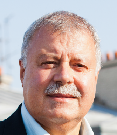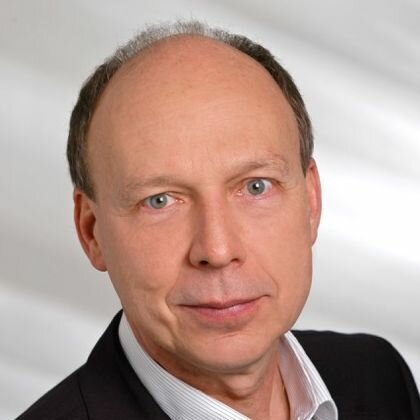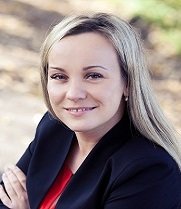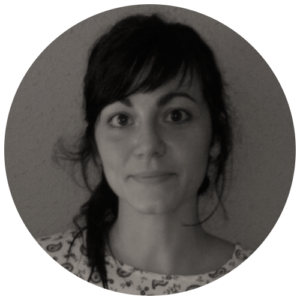About the Civic Pride Awards
Every year, the European Civic Forum recognises outstanding civic initiatives with the Civic Pride Awards.
These awards celebrate their inspiring work, raise their visibility at the European level, and encourage convergences between their struggles.
They aim to acknowledge the vital role of civil society actors, movements, and organisations across Europe that protect and enact EU values and democracy, even in the face of shrinking civic space.
This year’s ceremony took place on 18 September 2023 in Brussels, attended by civil society actors and activists.
During the ceremony, we presented the Civic Pride Awards to the winners and celebrated their exceptional efforts and achievements.

2023 Civic Pride Award winners
TGEU
In defiance of the anti-rights backlash, TGEU has established itself as a legitimate voice for trans communities, working to strengthen the rights and well-being of trans people, with over 500 organisation and individual members in 50 countries in Europe and Central Asia.
TGEU’s core objective is to develop intersectional and decolonised programmes to build a more resilient and connected trans movement. The organisation has helped to empower trans individuals and movements by equipping organisations and activists with tools and resources to organise their activism and through its policy and advocacy work. TGEU has successfully lobbied for policy changes that protect the rights of trans individuals and promote their inclusion in society. Moreover, it plays a fundamental role in documenting and monitoring trans rights across focus countries.

Our communities continue to face escalating levels of transphobia, violence, systemic and intersectional discrimination which perpetuate poor health outcomes, as well as economic hardships and insecurities of poverty, homelessness and unemployment. The situation is more precarious for multiple minoritised trans communities particularly those who are refugees, asylum seekers, undocumented, Black and people of colour, transfeminine, sex workers, elderly, D/deaf and disabled and youth. Yet, amid all these adversities our trans communities remain resilient, united, caring for each other, celebrating small wins, resisting and collectively advocating for our rights together with our allies
Gribu palīdzēt bēgļiem (ENG “I want to help refugees”), Latvia
Gribu palīdzēt bēgļiem (GPB), Latvia started its movement on Facebook in 2015, providing practical, immediate, and voluntary aid to refugees and asylum seekers to help them integrate into Latvian society by supporting them look for jobs, housing, and schools, assisting with administration, and by creating a website through which people can volunteer to help refugees and refugees can seek help.
Since the full-scale invasion on Ukraine started last year, GPB played a major role in coordinating with approximately 25 other NGOs to provide aid for Ukrainian refugees coming to Latvia through transportation cooperation, donations, and volunteering help, and in the first weeks, helped more than 4000 people.

The response to the war has taught us a lot about the power of civil society, about us as human beings, as organisations, as countries, and as the European Union united to protect, to assist and to stand together as long as it takes. At the same we should learn how to use the lessons learned to improve the reception conditions for all those in need.
The Saami Council and Sámi rights movement
The Saami Council was founded in 1956 by Sámi organisations in Sápmi, the traditional homeland of the Sámi People, spanning across parts of Finland, Sweden, Norway, and Russia, to represent and amplify the voices of the Sámi civil society, and work for Sámi rights, politics, language, culture, and to raise awareness of Arctic and environmental issues.
The Council has also been engaged on a European level since the EU unit was established in 2019 through monitoring and influencing relevant EU processes and leading the EU-Sámi Youth Idea Lab, a project which raises awareness about Sámi youth participation in EU initiatives and policies.

Despite being the only recognised Indigenous Peoples in Europe, very few Europeans are aware of the Sámi, and there is still a long way to go in terms of realising our rights in our respective nation states. Cases like the illegal wind industry on Sámi reindeer herding land on Fosen peninsula in Norway, and Finland’s failure of securing Sámi rights to self-determination through the Sámi Parliament Act have sparked national and international debates. Regrettably, media coverage of any case involving Sámi topics often brings out a lot of hate and racism towards the Sámi on social media. It’s a clear indication of the challenges still ahead, and why we need a strong Sámi civil society.
SPECIAL COMMENDATION: Hungarian Teachers’ Movement
Despite the restrictions faced, the protest movement composed of teachers, students, and parents has been fighting for public education for several years. Their demands include better salaries, improvement in working conditions, autonomy in the national curriculum, open and constructive discourse in public education, the right to strike without limitations, and access to high quality education for all. Several teachers have been fired for participating in civil disobedience but students and parents have joined the protests in their support.
Teachers continue to face new restrictions. In July, the Public Education Act, also known as the status law, was passed by the government. The law, dubbed by teachers as a ‘vengeance law’ in retaliation for their strike action, decreases the teachers’ freedom to work autonomously and their right to strike.

I could never have imagined that I could be kicked out of my school just because I would like to discuss the welfare of children and colleagues. For us, this was the point when we started to be more fierce by taking part in civil disobedience actions… this started a very difficult kind of game between the government and the movement where we were trying to be more effective and reach practical goals, while the government tries even more to repress the movement
The Selection Committee
This year’s winners were selected from the 123 outstanding applications to the European Civic Academy 2023. In addition, a special commendation was awarded from outside the applicant pool.
Meet the Selection Committee below!

Jean Marc Roirant

Raffaella Bolini

Frank Heuberger

Vera Mora

Jan Robert Suesser

Karolina Dreszer-Smalec

Filip Pazderski

Thais Bonilla
Activizenship & Civic Spaces podcast
Stay tuned for issue #7 of Activizenship – the ECF’s annual magazine – which will feature in-depth interviews with this year’s winners, in addition to many other inspiring activists.
Later this year, we will also release special episodes of the ECF’s Civic Spaces podcast focusing on the awardees.

